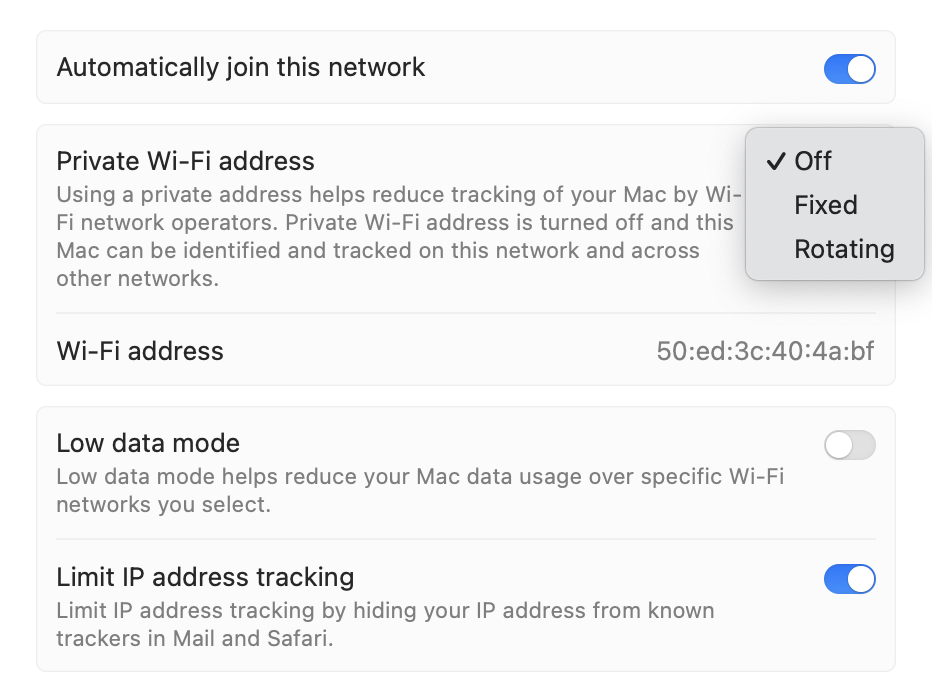MAC Randomization changes iOS 18 / macOS 15 that affect Public and Enterprise Wi-Fi services
Apple’s iOS 18 and macOS 15 introduce updates to MAC randomization. These MAC Randomization changes iOS 18 / macOS 15 are improving user privacy, but impacting the way Wi-Fi services operate.
MAC Randomization changes iOS 18 / macOS 15 – Enhanced privacy for users, challenges for Wi-Fi service providers
Traditionally, when connecting to a Wi-Fi network devices used a fixed MAC address. This helped the network identify and track user behavior. This data is often used by Wi-Fi service providers to enable automatic re-authentication, seamless login, the collection of analytics and demographics, personalized experiences, offers and marketing campaigns.
To prevent this kind of tracking, Apple’s latest changes causes their devices to have a rotating MAC address. With these changes, devices will rotate their MAC addresses every two weeks. While this update protects user anonymity, it poses challenges for Wi-Fi service providers who rely on stable MAC addresses for network management.
Affected Wi-Fi features
The primary issue for public and enterprise Wi-Fi networks is how users are authenticated and tracked. With rotating MAC addresses, a device may appear as a new user each time its address changes.
This disrupts traditional Wi-Fi service features:
- Automatic login – Users will be forced to re-authenticate more frequently.
- Customized offers based on user behavior – The ability to deliver personalized experiences is reduced.
- Wi-Fi analytics – This data may become unreliable or incomplete.
- Foot traffic, dwell times, and return visits – This data may become unreliable or incomplete.
A change of strategy
The impact of these changes will be especially felt by businesses offering free, guest or enterprise Wi-Fi services. Without careful preparation, users may experience more friction in the process of connecting to these networks. Wi-Fi service providers can adapt by implementing technologies that don’t rely solely on MAC addresses. For example: using login credentials or loyalty program integrations that tie users to an account rather than a device’s MAC address can still provide reliable user analytics.
In conclusion
While Apple’s privacy-focused updates to MAC randomization benefit users, they introduce challenges for Wi-Fi service providers. By adopting new technologies and refining authentication methods, businesses can continue to offer reliable and user-friendly Wi-Fi services, even in the face of evolving privacy standards.

